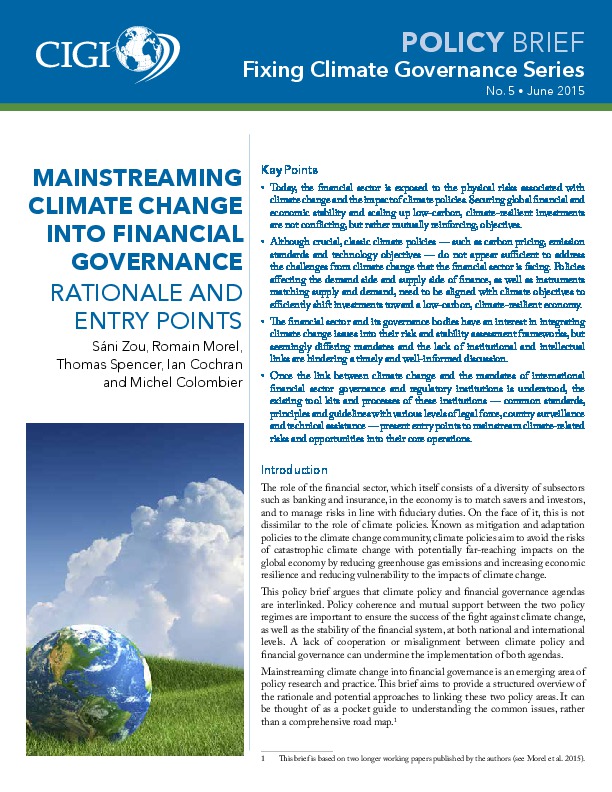Mainstreaming Climate Change into the financial sector: rationale and entry points
CIGI POLICY BRIEF No. 5 • June 2015 Fixing Climate Governance Series
by Sáni Zou, Romain Morel, Thomas Spencer, Ian Cochran and Michel Colombier
Mainstreaming Climate Change into the financial sector: rationale and entry points
- Today, the financial sector is exposed to the physical risks associated with climate change and the impact of climate policies. Securing global financial and economic stability and scaling up low-carbon, climate-resilient investments are not conflicting, but rather mutually reinforcing, objectives.
- Although crucial, classic climate policies — such as carbon pricing, emission standards and technology objectives — do not appear sufficient to address the challenges from climate change that the financial sector is facing. Policies affecting the demand side and supply side of finance, as well as instruments matching supply and demand, need to be aligned with climate objectives to efficiently shift investments toward a low-carbon, climate-resilient economy.
- The financial sector and its governance bodies have an interest in integrating climate change issues into their risk and stability assessment frameworks, but seemingly differing mandates and the lack of institutional and intellectual links are hindering a timely and well-informed discussion.
- Once the link between climate change and the mandates of international financial sector governance and regulatory institutions is understood, the existing tool kits and processes of these institutions — common standards, principles and guidelines with various levels of legal force, country surveillance and technical assistance — present entry points to mainstream climate-related risks and opportunities into their core operations.
To learn more, read our more comprehensive working papers on Mainstreaming Climate Change in the Financial Sector and its Governance:Part I: A Necessary and Timely Evolution
